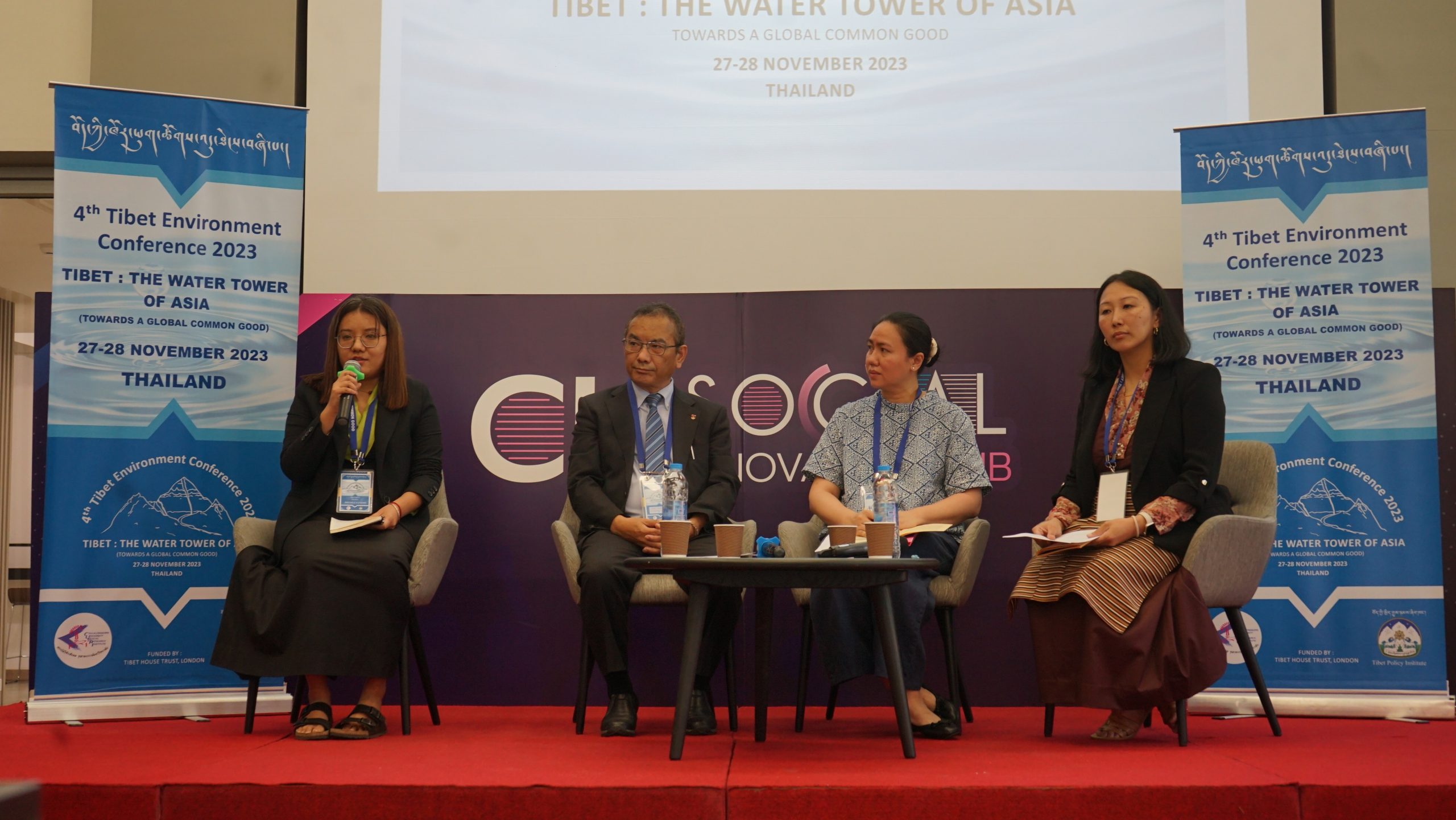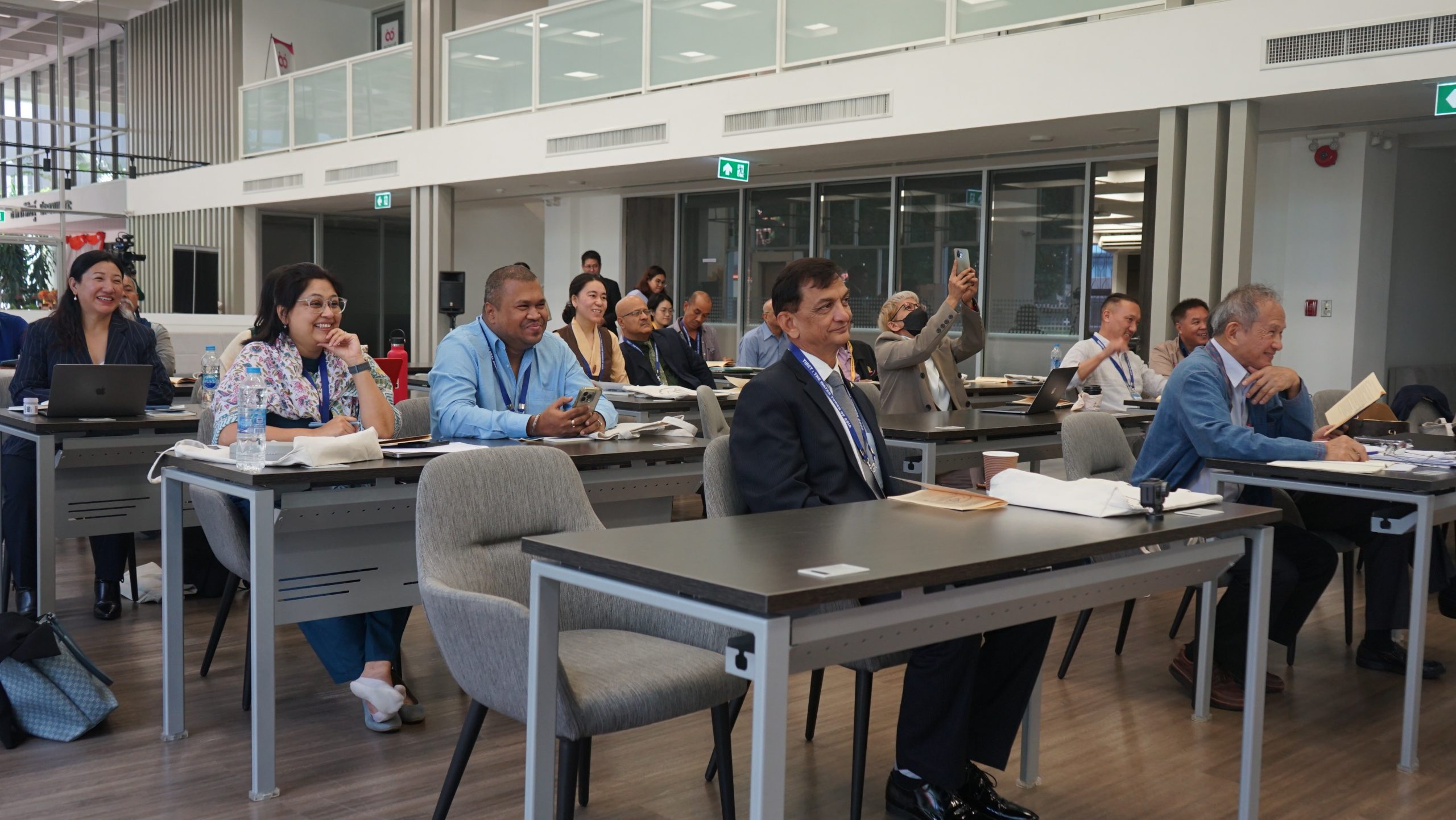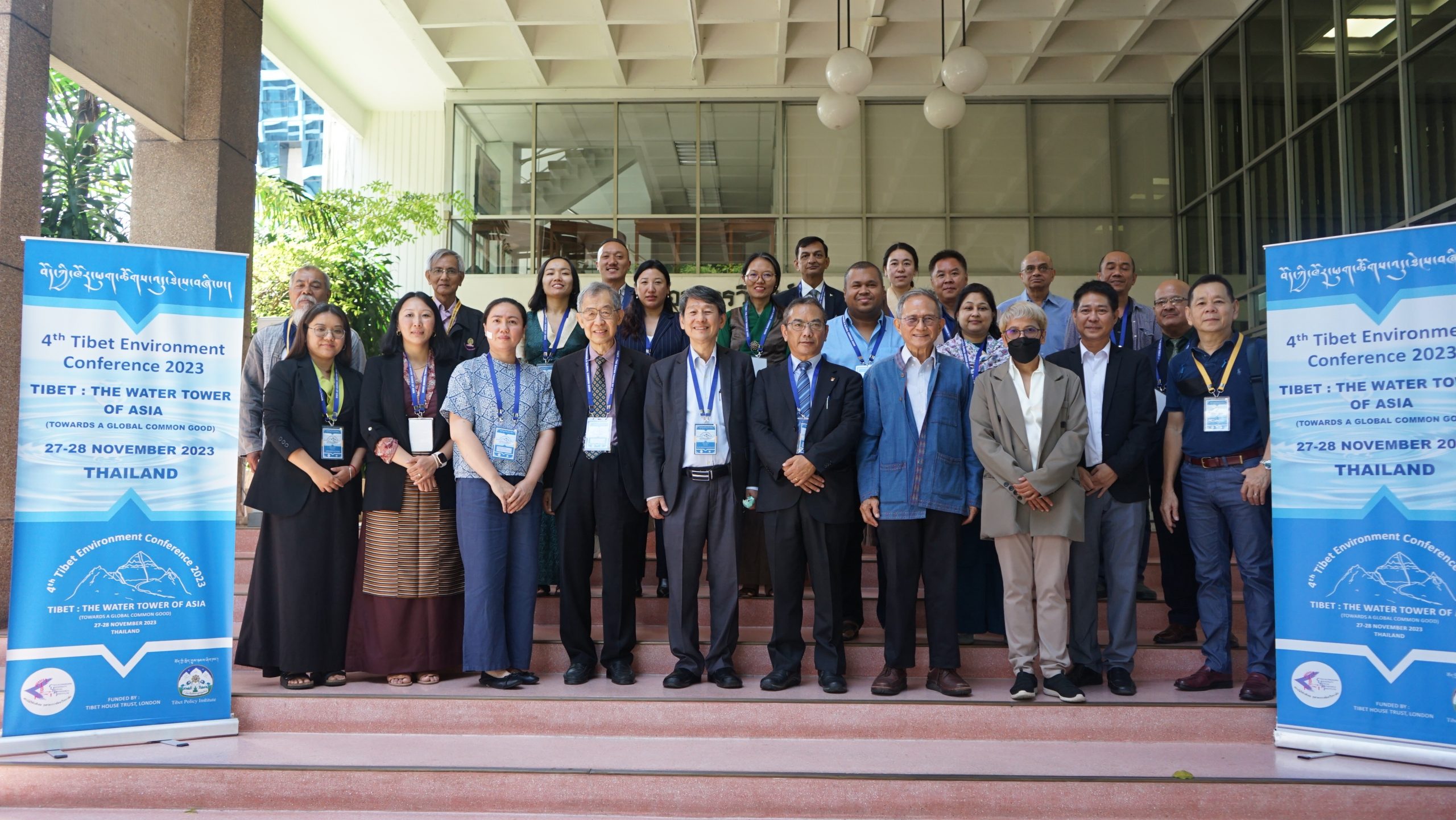
Guess Speaker: Dr Tsewang Gyalpo Arya (Representative of Office of Tibet in Japan) and Dr Sayamol Charoenratana (Vice President of Social Research Institute at Chulalongkorn University).
Thailand: The 4th Tibet Environment Conference was held in Thailand from 27-28 November. The two-day conference was jointly organised by Tibet Policy Institute (TPI) and Chulalongkorn University. The theme of this year’s conference is Tibet: The Water Tower of Asia (Towards a Global Common Good).
The inaugural session today was presided over by Dr Tsewang Gyalpo Arya (Representative of Office of Tibet in Japan) as the chief guest and Dr Sayamol Charoenratana (Vice-president of Social Research Institute at Chulalongkorn University) and was participated by Asia and South East Asia’s leading experts on environment, environmental scientists, activists and researchers.
This conference is convened prior to 2023 COP28 to generate more awareness and to foreground Tibet’s ecology and water in the global climate conversations. The conference will explore the challenges and complexities facing the downstream communities due to the unprecedented construction of dams and water diversions.
Some of the key topics covered at the conference include hydro-geopolitics in the South Asian river basins, climate change challenge to food and water security, neutralisation of water dispute, analysis of contemporary China’s transboundary water governance, the impact of the Tibetan plateau on the onset of the southeast asian summer monsoon, and linking science to policy making etc. among other topics. In addition, the participants called out both the government and non-governmental organisations to strengthen joint initiatives to protect Asia’s rivers and riparian countries.
Representative Arya spoke about the significance of Tibet’s ecology and Tibet’s current environmental situation against China’s economic development policy. He cited examples of China’s exploitation of Tibet’s minerals and natural resources impacting Asia’s rivers.
Dr Sayamol emphasised the call for countries facing water crisis to work together in tackling the common challenge. She highlighted the water scarcity issues in Asia particularly in Thailand due to climate change and mismanagement of the water resources.
Dechen Palmo, environmental researcher at the TPI explained the objective and purpose of the conference which is to highlight the global ecological importance of the Tibetan Plateau and the current environmental situation in Tibet. The Conference also attempts to understand the impact of climate change in Tibet and its relationship with global climate change.
On the second day of the conference, the participants will deliberate on these three important issues: Indigenous Knowledge and Climate Resilience, Public Participation in the Governance of Transboundary Water Resources and Tibet in the Global Climate Conversation.
The conference expects to reassess, readdress and foreground the state of Tibet’s transboundary rivers and the growing transboundary water crisis that affects the livelihood of millions of people.
It also expects to form a coalition of multiple stakeholders that will highlight the critical importance of regional cooperation over shared water resources to ensure water security, better water governance, and sustainable development.
The 1st Tibet Environment Conference in 2015, the 2nd Tibet Environment Conference in 2019 and the 3rd Environmental Conference held virtually in 2021 have successfully brought together a diverse group of experts to highlight and understand Tibet’s ecological importance, particularly the importance of Tibet’s rivers and understanding Tibetan Plateau’s ecological role and relationship with global climate change.
-Reported by Tibet Policy Institute


